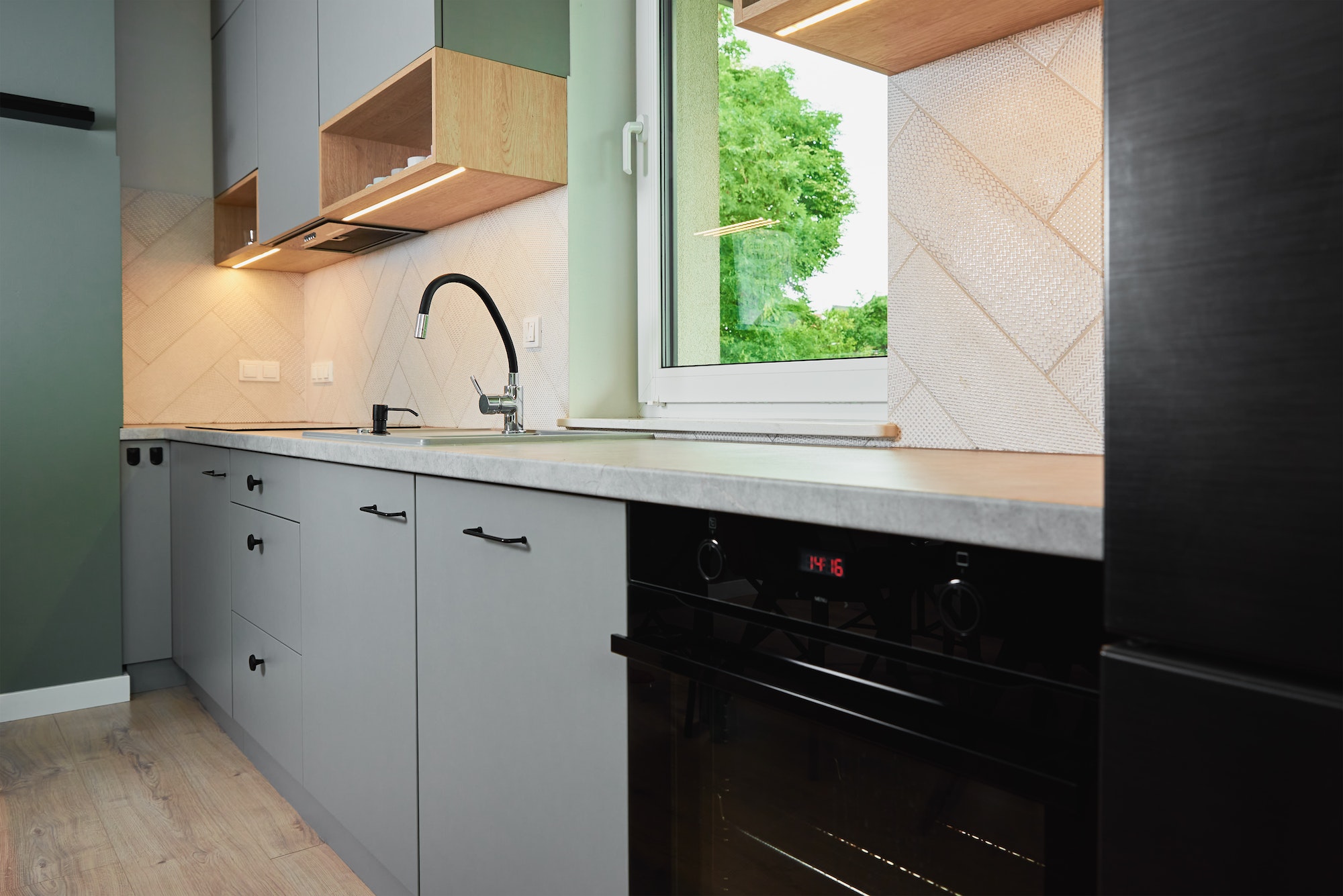But there are some notable differences between quartz vs granite countertops when it comes to ongoing maintenance and long-term wear and tear.
Granite is a classic natural stone requiring yearly sealing to prevent stains. Quartz is an engineered stone that never needs sealing thanks to its non-porous surface. This article will delve into the pros, cons, and unique characteristics of granite and quartz countertops. We’ll compare the maintenance requirements, durability, heat resistance, cost, and styles of each stone. If you’re trying to decide between granite vs quartz for new kitchen or bathroom countertops, this guide will provide the details you need to select the best material for your home and lifestyle.
Granite Countertops
Granite is a popular natural stone used for countertops prized for its elegance, durability, and unique beauty. It’s quarried in large slabs that are cut and polished for installation. The mineral composition of granite results in a wide array of colors and distinctive patterns. No two granite slabs are ever identical.
The pros of granite countertops include excellent resistance to heat, scratches, and chips. Properly sealed, granite can last a lifetime. The high-gloss polished finish enhances the stone’s natural elegance. Each slab of granite has an utterly unique appearance thanks to the speckles, veins, and swirls created through natural geologic processes. If you are looking for discount granite countertops Chicago area, be sure to shop around and compare quotes.
However, granite requires yearly sealing to prevent stains and frequent cleaning to stop bacteria growth. Granite can crack if subjected to a heavy impact. Acidic foods and liquids like wine or fruit juices can also damage granite surfaces. Granite needs occasional polishing to maintain its shine. Homeowners who want the beauty of granite must be prepared to provide regular care and maintenance. For those seeking a low-maintenance alternative, engineered quartz counters may be preferable.
Maintenance of Granite Countertops
Due to the porous nature of natural granite, proper maintenance is essential for preserving the beauty and longevity of granite countertops. The first key maintenance task is sealing the granite about once a year using a penetrating sealer formulated for natural stone. Sealing prevents stains from absorbing into the surface.
For daily cleaning, use a mild soap and warm water. Thoroughly rinse away all soap residue and completely dry the surface. Immediately wipe up any spills, especially acidic liquids like wine, fruit juice, or vinegar which can etch granite. Avoid using harsh cleaners or abrasive pads that could scratch the polished finish.
Use trivets, hot pads, or pan pads when setting hot pots, pans, or bakeware on the counter. The extreme heat could damage sealed granite. For food prep, cut only on designated cutting boards, not directly on the granite surface.
Over time, granite can lose its glossy polished sheen. Use a granite polish specifically designed for natural stone countertops to restore shine and luster. With proper sealing, careful cleaning, and polishing, granite countertops can remain in pristine condition for decades. Taking the time to care for natural granite helps preserve both its beauty and value in the kitchen or bathroom.
Quartz Countertops
Quartz countertops are engineered stones made from natural quartz crystals combined with polymers and resin for binding. This makes quartz harder and less porous than natural stone. The manufacturing process allows quartz to be molded into countertops of uniform color and texture.
The key benefits of quartz counters are resistance to stains, scratches, and heat. Quartz requires very little maintenance without the need for routine sealing or polishing. It does not easily damage from mild acidic foods. An array of colors and patterns are available, although not as unique as natural stone.
Drawbacks of quartz include vulnerability to damage from heavy impacts. Seams may be more visible than natural stone, and repairs stand out. Quartz can lose its luster and develop scratches over time. Quartz is also not as heat-resistant as granite, so hot pans can potentially scorch the surface. Lower-cost varieties of quartz are more prone to damage.
For homeowners wanting an attractive yet low-maintenance countertop, quartz is a practical option. With fewer natural flaws than granite, quartz offers refined uniformity. But for those desiring the unique elegance of natural stone, granite may be the preferable choice.
Caring for Quartz Countertops
One of the biggest advantages of quartz countertops is the ease of maintenance compared to natural stone. Since quartz is non-porous, it never requires sealing. This prevents spills and stains from being absorbed into the surface.
For routine cleaning, warm water and mild soap are all that are needed. Quartz can withstand a wider variety of household cleaners than natural stone, although abrasive products should still be avoided. Thoroughly rinse off any cleaning agents.
It is important to promptly wipe up spills, especially oils, wines, or juices that can stain if left for prolonged time periods. Though quartz resists stains better than granite or marble, immediate cleanup helps prevent possible discoloration.
Take care not to subject quartz counters to sustained high heat from hot pans, slow cookers or electric griddles which can potentially damage the solid surface over time. Always use trivets or hot pads for hot cookware.
Avoid using harsh scrub brushes or scouring pads during cleaning which could scratch the smooth finish. Check manufacturer guidelines as some require special quartz cleaners to prevent possible dulling of the surface. With simple care, quartz provides long-lasting beauty without the maintenance hassles of natural stone.
To conclude, quartz and granite both make excellent choices for countertops. Quartz requires less maintenance while granite offers unsurpassed durability and natural beauty. Consider factors like upkeep, patterns, and budget when deciding between materials. Those desiring natural stone may prefer the granite countertops Chicago offers. Evaluate countertop needs to choose between these popular options for any kitchen remodel.
Discover more from Futurist Architecture
Subscribe to get the latest posts sent to your email.




